Reading Comprehension Teaching Resources
Explore printable reading comprehension worksheets, digital activities and more to teach reading comprehension strategies in your primary classroom. Created by teachers, for teachers, the teaching resources in this collection are aligned with the Australian curriculum and have undergone a careful review by a member of our expert teaching team.
You'll find editable versions to easily differentiate your instruction for individual students, plus various options to make your lesson planning easier this school year!
New to teaching this portion of the English curriculum or just looking for fresh and engaging ways to teach reading comprehension strategies? Read on for a primer from our teacher team, including a simple definition of reading comprehension, a look at different strategies students can use and more!
What Is Reading Comprehension?
We'll start at the beginning! Reading comprehension is a skill that's hard to overestimate in terms of its importance for early years students to develop.
Defined as the ability to understand and interpret written language, reading comprehension involves the process of decoding text, extracting meaning from it, and then integrating that meaning with prior knowledge and understanding.
Not only does comprehension comprise the ability to recognise and understand individual words, but it also involves the ability to recognise patterns and relationships within sentences and paragraphs, as well as the ability to make inferences and draw conclusions based on the information presented.
This isn't just important for reading, of course.
Comprehension is all about making meaning, and it includes various levels of understanding, including:
- Literal
- Inferential
- Evaluative
- Critical
If you think about it, we rely on these skills on a daily basis — when we notice the stooped shoulders of a partner as they walk in the door or when we listen to the weather report and observe how heavily laden the sky is with grey clouds.
To develop those same skills in a reading context, our students need to build a variety of language skills, such as vocabulary knowledge, grammar and syntax, as well as cognitive processes, such as attention, memory and critical thinking.
So how do they get there? Let's talk strategies!
What Are Reading Comprehension Strategies?
As you well know, students don't start off being able to comprehend every single thing they read. But teaching them strategies to understand better and retain information will allow them to go from recognising individual words to understanding a range of texts.
Some common reading comprehension strategies include:
- Previewing — This is the process of skimming the text before reading it in detail to get an overall sense of what it is about.
- Activating Prior Knowledge — Students can draw on existing knowledge and experience to help them understand new information, such as a new text.
- Making Connections — This strategy focuses on teaching students to make connections between a text and their own experiences and understandings. Research into the science of reading has shown enhanced comprehension when students are able to connect new information to information they already know.
- Questioning — In this comprehension strategy, students ask and answer questions to clarify the meaning of the text and deepen their understanding. When you centre questioning activities around the familiar open-ended prompts of who, what, when, where, how, why, and which, students assert their understanding and identify any gaps in their comprehension of the text. Questions can be posed by a teacher, by their peers, or by the students themselves.
- Visualising — Visualisation provides both teachers and students with another means to extend their exploration of a text and deepen understanding. This reading comprehension strategy asks students to create and describe an image in their mind, centered around a place, situation, or character in the text. Visualising has been proven in research to improve student recall! Using the five senses is a great way to scaffold student comprehension through visualising.
- Summarising — Summarising is a reading comprehension strategy that asks students to reflect on the text and communicate their understanding of it. A well-formed summary is made up of the main idea of the text and the key details that support the main idea, showing that the student has understood what they’ve read well enough to write a summary that’s not merely a repetition of the text.
- When summarising, students may complete one or more of the following:
- Recount the text in their own words
- Identify the main idea, topic or purpose
- List key words or phrases
- Identify structural elements of the genre
- Using the SWBST process can help students with this reading comprehension strategy. The steps in the SWBST process are:
- Somebody
- Wanted
- But
- So
- Then
- When summarising, students may complete one or more of the following:
- Inferring — The process of drawing conclusions based on clues or evidence presented in the text is called inferring, and it involves readers using what they know and pairing it with what they read in the text to make a conclusion. You may also call this 'reading between lines!'
- Monitoring Comprehension — When monitoring comprehension, students reflect on and assess their understanding as they progress through the text. In this metacognitive process, students may ask themselves questions like 'Is this making sense?' or 'Do I need to read this again?'
- Some comprehension strategies that may be effective may include going back to reread a section of a text, slowing down or speeding up your reading rate, and using text features to help understand difficult parts of a passage. All of these are active reading strategies that students can do to help them better understand what they are reading, while they are reading!
- While monitoring asks students to identify hurdles and barriers, students also benefit from connecting this reading comprehension strategy with explicit strategies to help them pass their hurdles.
All of these comprehension strategies can be taught and practised explicitly.
- Plus Plan
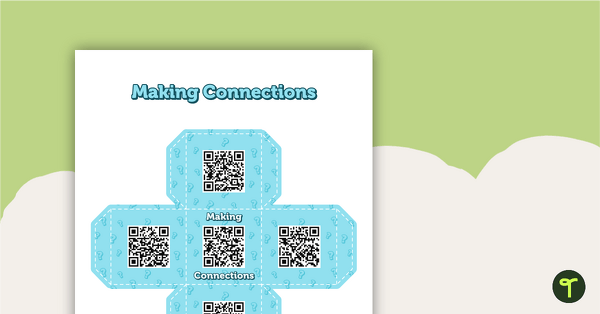
QR Code Super Six Comprehension Question Cubes
A set of QR code question cubes to use when working with the Super Six reading comprehension strategies.
- Plus Plan
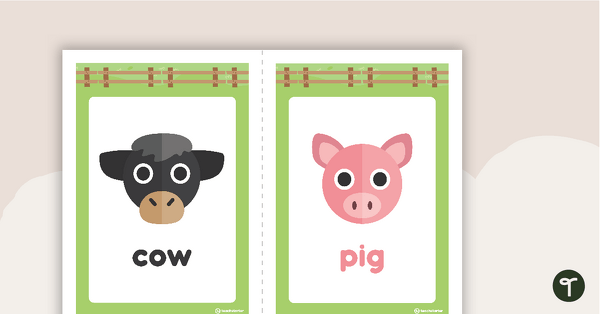
Farm Yard Sounds Match-Up Activity
A set of eight farm animal cards with matching animal sound cards.
- Plus Plan
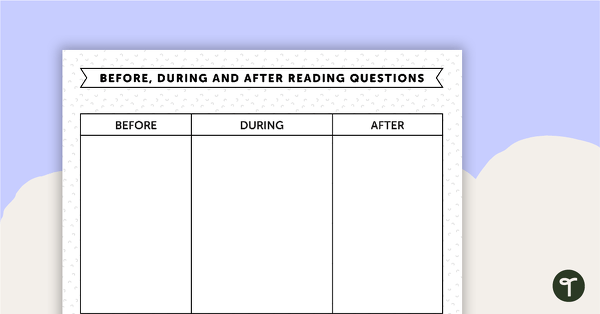
Before, During and After Reading Worksheet
A worksheet to use when asking questions before, during and after reading.
- Plus Plan
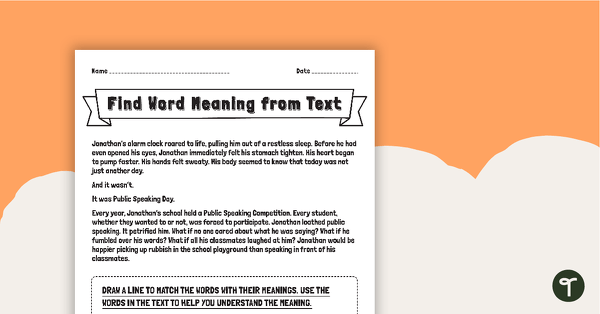
Finding Word Meaning In Context - Text And Word Meaning Worksheet
A teaching resource to help teach your students how to find word meaning in context.
- Plus Plan
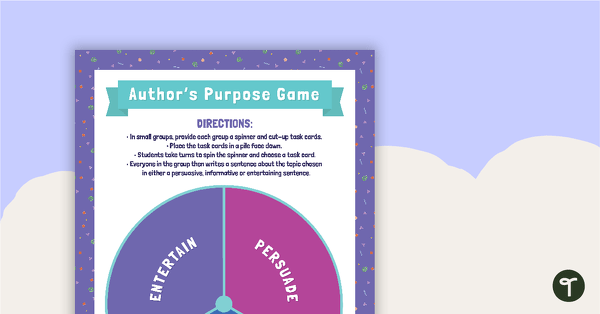
Author's Purpose - Sentence Writing Game
A teaching resource to help teach your students the different reasons authors may write.
- Plus Plan
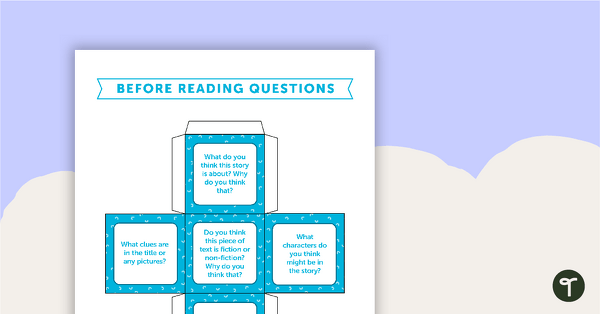
Before, During and After Reading Fiction Questions - Dice
5 different versions of dice to use when asking questions before, during and after reading.
- Plus Plan
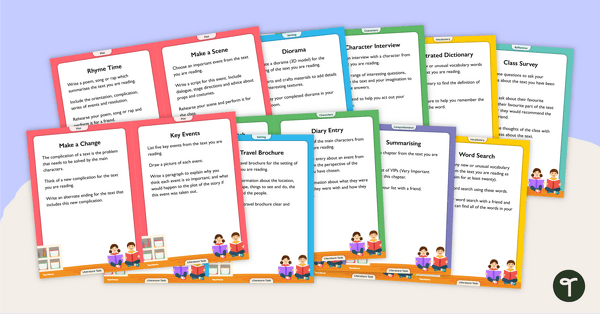
Literature Task Cards
A set of 30 literature tasks to assist your students with examining and responding to literature.
- Plus Plan
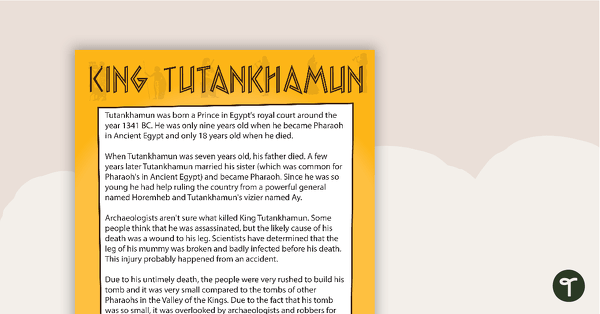
Comprehension - King Tutankhamun
A comprehension activity about King Tutankhamun.
- Plus Plan
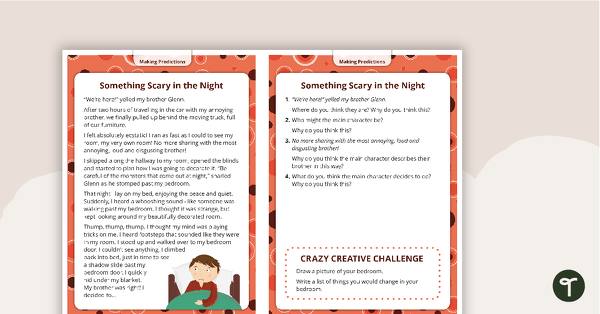
Comprehension Task Cards - Making Predictions
A set of comprehension task cards to help students make predictions when reading.
- Plus Plan
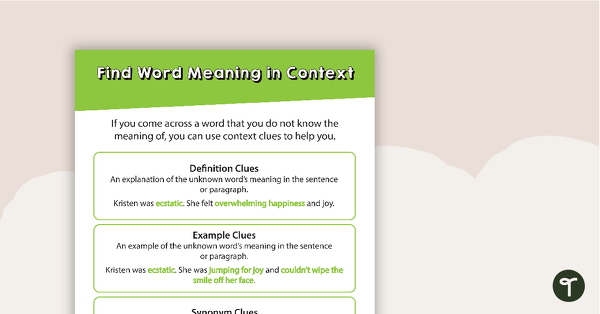
Comprehension Task Cards - Finding Word Meaning In Context
A set of comprehension task cards to help students find word meaning in context when reading.
- Plus Plan
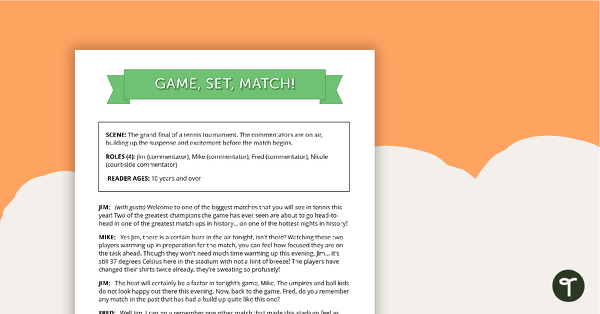
Comprehension - Game, Set, Match!
A fun script and set of questions to help students develop reading and comprehension strategies.
- Plus Plan
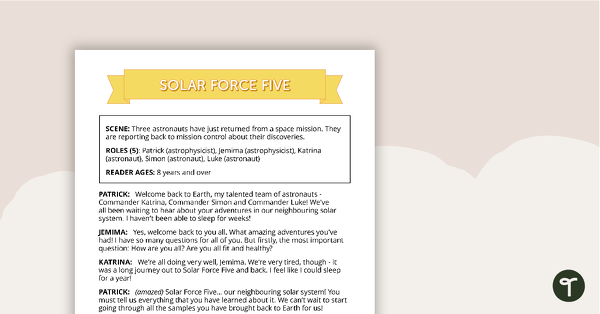
Comprehension - Solar Force Five
A fun script and set of questions to help students develop reading and comprehension strategies.
- Plus Plan
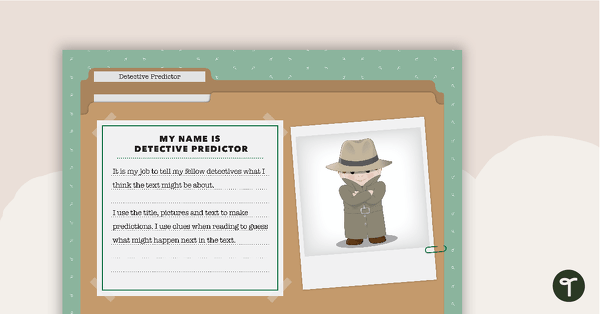
Reading Detectives Posters and Banner
8 colourful reading detective posters and a banner to display in the classroom.
- Plus Plan
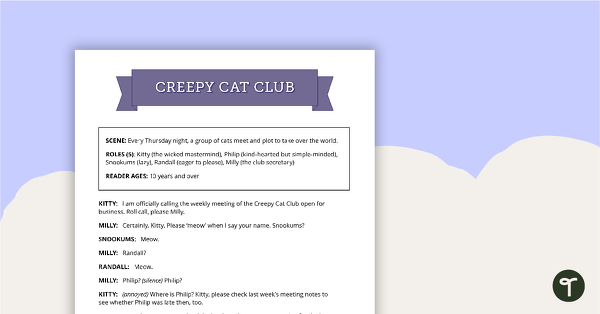
Comprehension - Creepy Cat Club
A fun script and set of questions to help students develop reading and comprehension strategies.
- Plus Plan
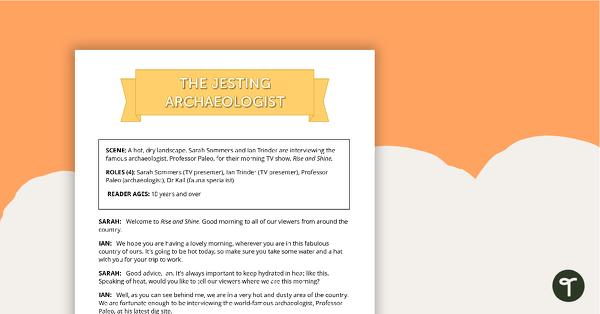
Comprehension - Jesting Archaeologist
A fun script and set of questions to help students develop reading and comprehension strategies.
- Plus Plan
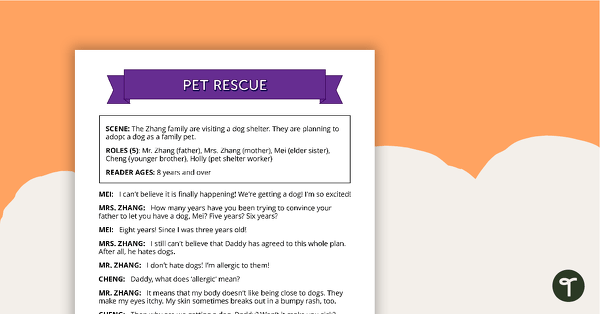
Comprehension - Pet Rescue
A fun script and set of questions to help students develop reading and comprehension strategies.
- Plus Plan
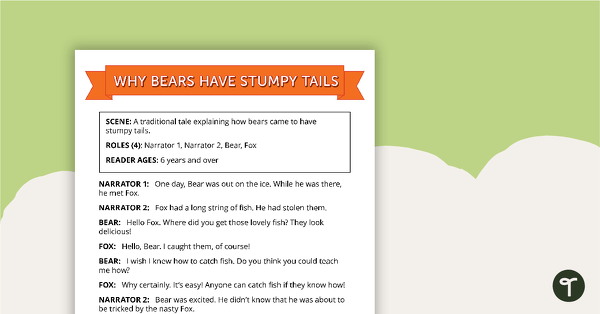
Comprehension - Why Bears Have Stumpy Tails
A fun script and set of questions to help students develop reading and comprehension strategies.
- Plus Plan
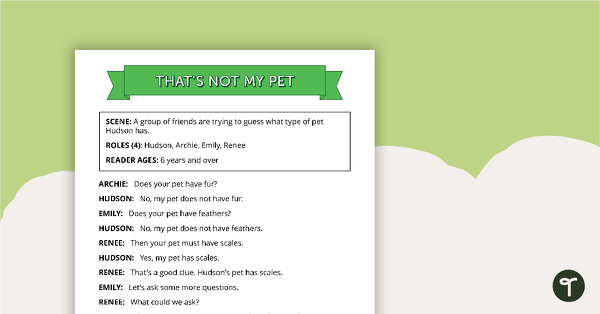
Comprehension - That's Not My Pet
A fun script and set of questions to help students develop reading and comprehension strategies.
- Plus Plan
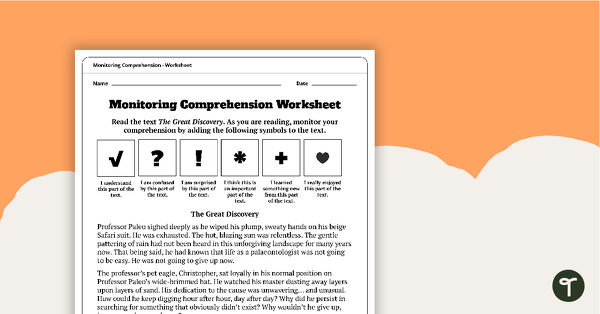
Monitoring Comprehension Worksheet
A 2 page worksheet focusing on the reading comprehension strategy of monitoring.
- Plus Plan
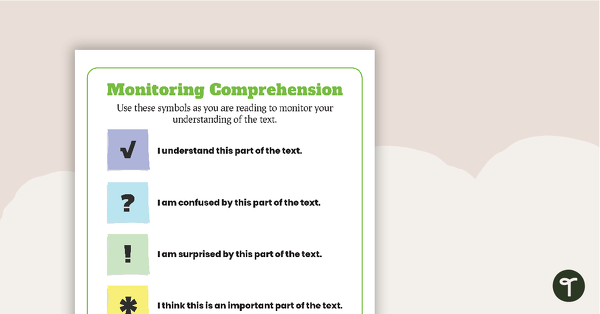
Monitoring Comprehension Symbols Poster
A poster of symbols students can use to monitor their understanding of a text.
- Plus Plan
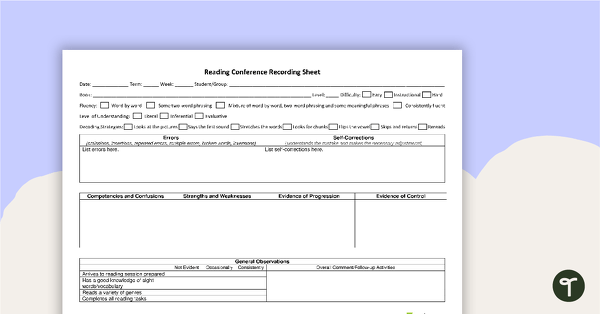
Reading Conference Recording Sheet
An editable recording sheet to use during reading conferences across all grades.
- Plus Plan
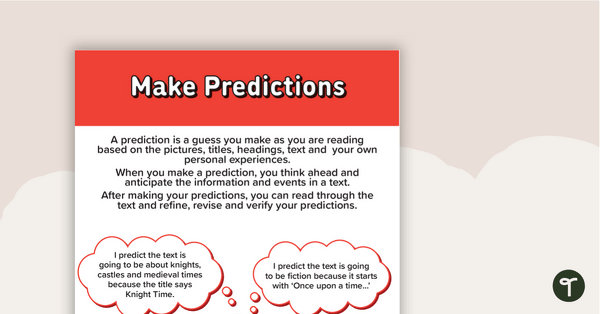
Make Predictions Poster
A poster highlighting how to make predictions when reading a piece of text.
- Plus Plan
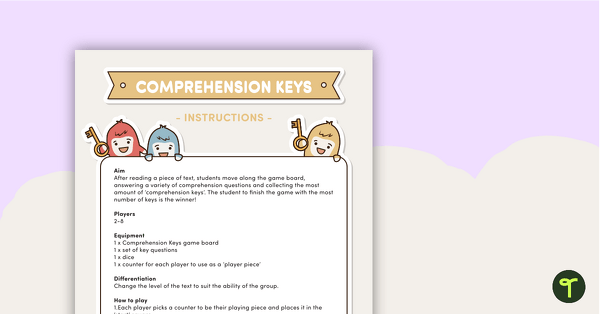
Comprehension Keys Board Game
A fun comprehension strategy board game for students to play during literacy rotations.
- Plus Plan
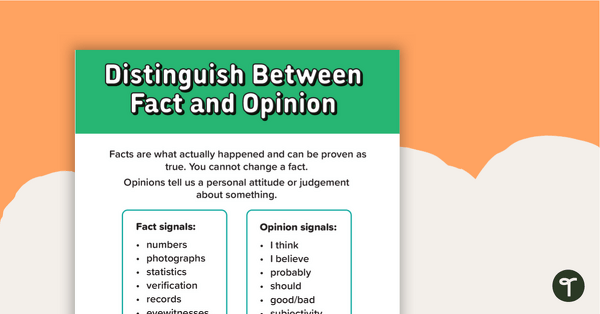
Distinguish Between Fact and Opinion Poster
A poster highlighting how to distinguish between fact and opinion when reading a piece of text.
- Plus Plan
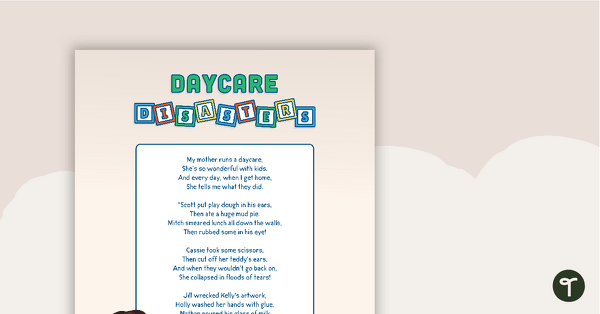
Exploring Poetry Worksheet - Context, Purpose and Audience
A worksheet to help students understand context, purpose and audience in poetry.
- Plus Plan
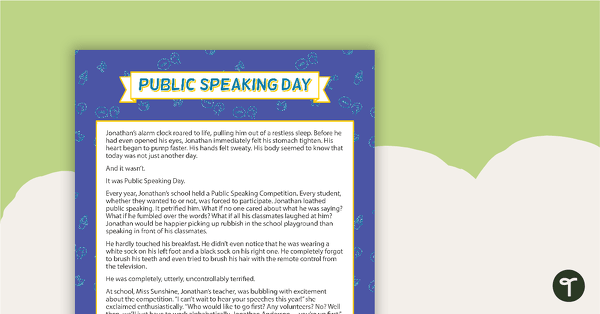
Comprehension - Public Speaking Day
A comprehension activity using a narrative about public speaking.
- Plus Plan
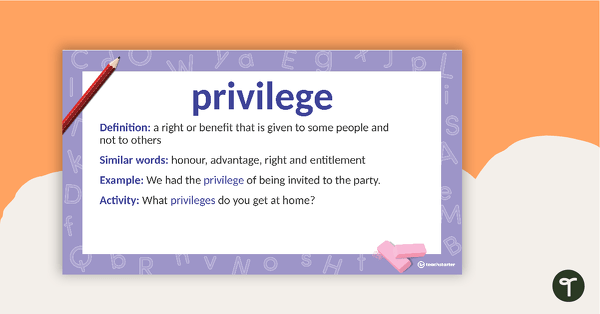
Word of the Week PowerPoint - Year 4
A 40 slide PowerPoint Template for introducing new vocabulary to year 4 students.
- Plus Plan
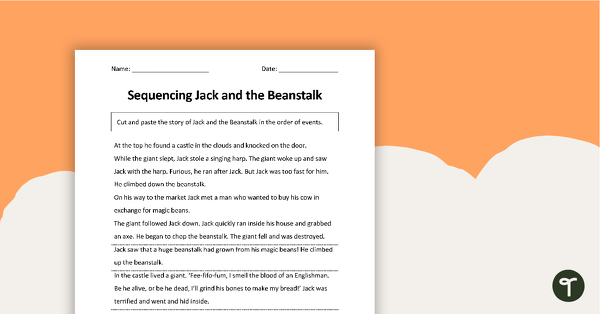
Understanding Sequence - Jack and the Beanstalk
A worksheet to use when teaching students how to understand sequence when reading.
- Plus Plan
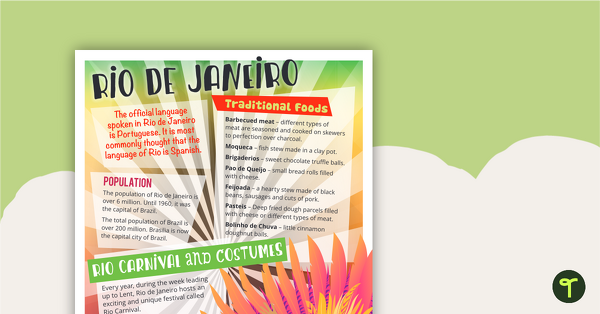
Rio de Janeiro - Comprehension Task
A comprehension task that encourages students to apply a range of comprehension skills when finding out interesting fun facts about Rio.
- Plus Plan
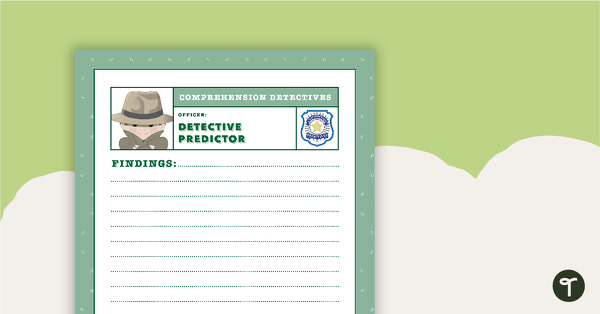
Reading Detectives Worksheets
8 reading detective worksheets to use during guided reading sessions in the classroom.
- Plus Plan
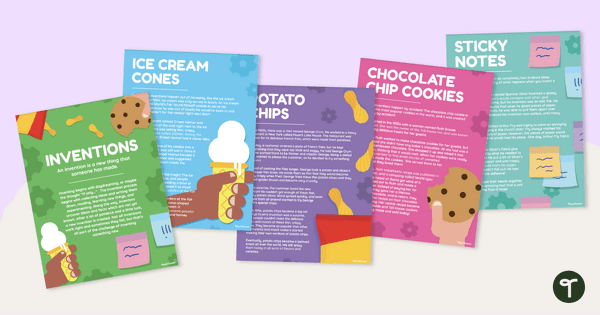
Inventions Information Poster
Discover some of the world’s most famous (and accidental) inventions with a set of printable invention posters
- Plus Plan
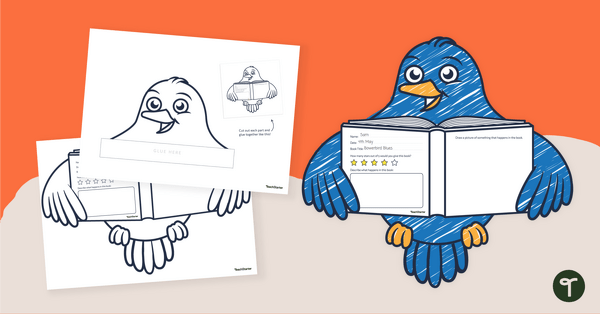
Bird Book Report Template
Explore the elements of a book with this fun and engaging book report template in the shape of a bird.
- Reading Comprehension Worksheets
- Reading Comprehension Templates
- Reading Comprehension Posters
- Reading Comprehension Teaching Presentations
- Reading Comprehension Games
- Reading Comprehension for Foundation Year
- Reading Comprehension for Year 1
- Reading Comprehension for Year 2
- Reading Comprehension for Year 3
- Reading Comprehension for Year 4
- Reading Comprehension for Year 5
- Reading Comprehension for Year 6
- Reading Comprehension for Year 7